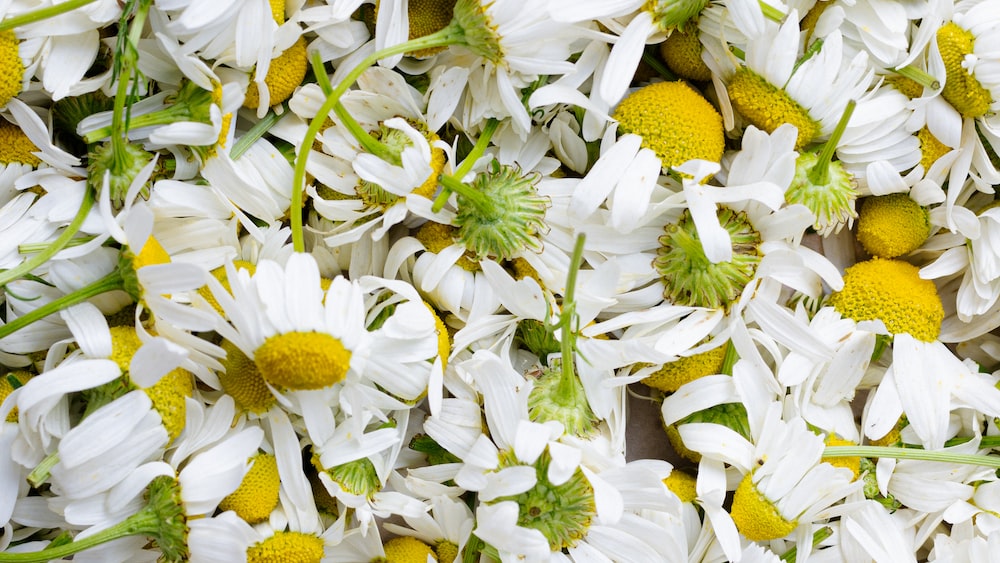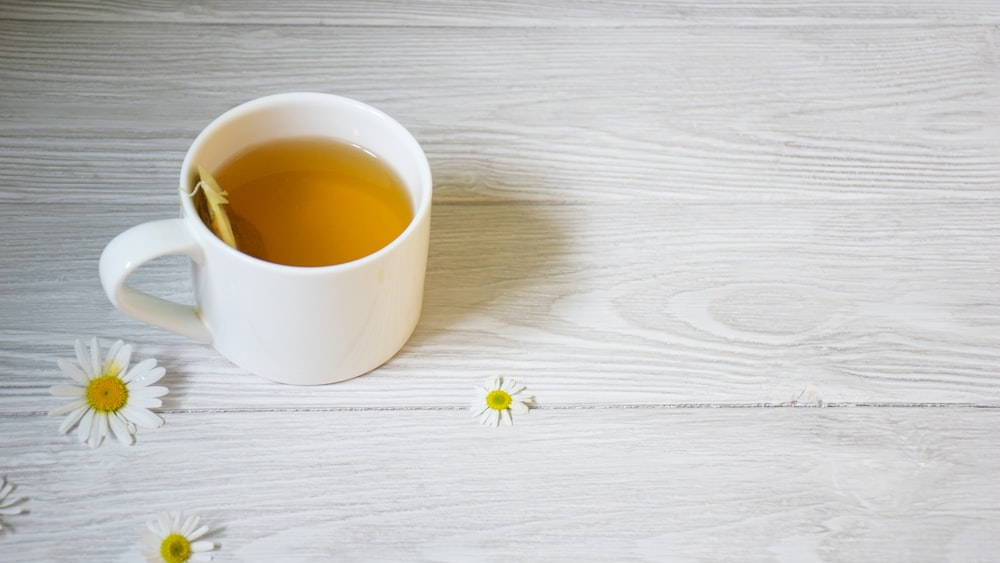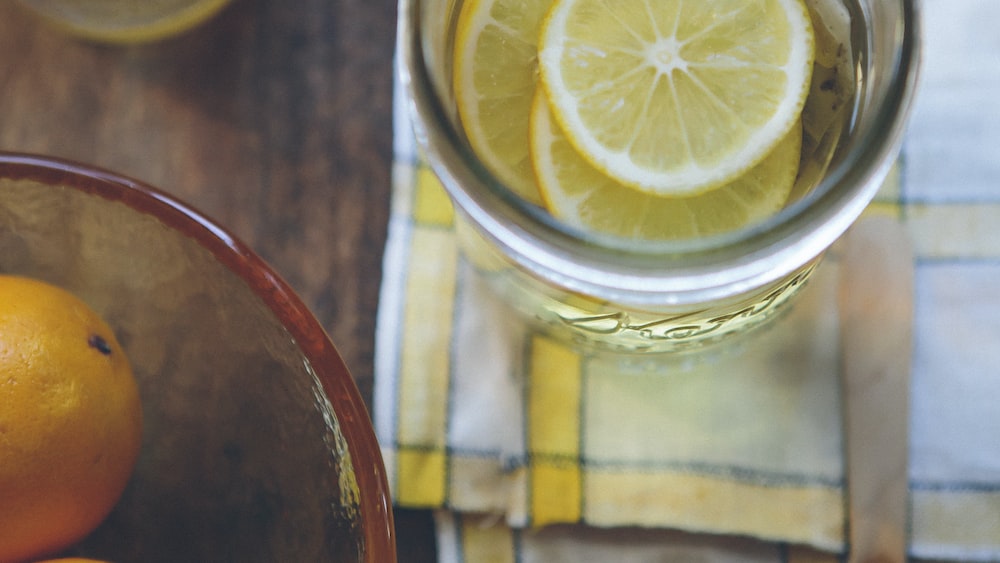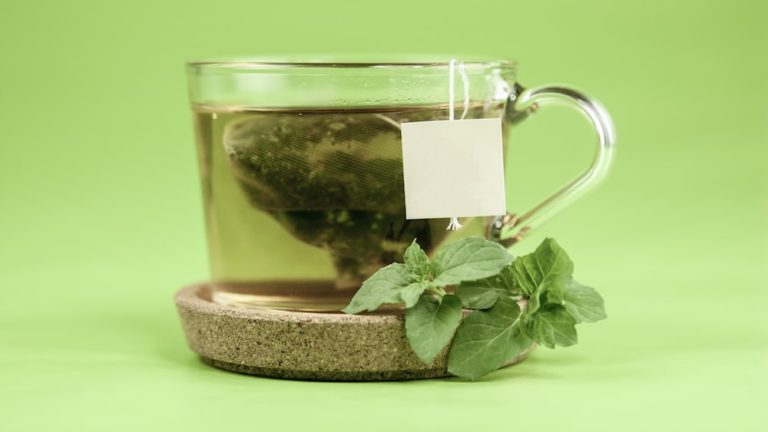Does Chamomile Tea Have Caffeine? 11 Surprising Facts

Does Chamomile Tea Have Caffeine? 11 Surprising Facts
Hello, fellow tea enthusiasts and health-conscious folks! Have you ever stood in the supermarket’s tea aisle, dreading that eternal question: “Does chamomile tea have caffeine?” Well, today we’re setting out on a quest to answer that persistent little question. Wondering why? Simply because we’re a curious bunch who love figuring out the ins and outs of everything tea!
Journey with us as we delve into the world of this soothing beverage. We’ll be chatting about its roots (quite literally), how it’s made, and drum roll please… its surprising caffeine content. Yes, we’re serving up knowledge on your favorite brew, chamomile tea, faster than your kettle can boil!
We’ll also be diving into the proven health benefits of this floral delight. In short, we are quenching your thirst for tea-related knowledge, while giving you some nuggets of wisdom to drop at your next tea party. So, shall we spill the tea on chamomile tea then?
Understanding Chamomile Tea
Before we jump into the caffeine-or-no-caffeine conundrum, let’s have a brief tête-à-tête about what chamomile tea really is. This information is crucial on our quest because, as the old saying goes, ‘know your tea before you drink it’. Okay, maybe we made that up, but it sure sounds wise, doesn’t it?
What is Chamomile Tea?
Chamomile tea, my dear friends, is not technically a tea. What?!! Well, you see, real “tea” is derived from the Camellia sinensis plant. What we refer to as chamomile tea is, in fact, an infusion or tisane. It’s made by steeping dried chamomile flowers in hot water.
This calming beverage is popular for its soothing properties and pleasant, apple-like taste. So if anyone asks you for an apple-infused beverage, you know what to give ’em, right?

Chamomile tea is not actually a tea, but rather an infusion made by steeping dried chamomile flowers in hot water, known for its soothing properties and apple-like taste.
The Origin and History of Chamomile Tea
Let’s take a quick trip down memory lane. Well, it’s not just a lane; it’s more like a massive highway of history.
The humble chamomile flower, the star of our favorite infusion, hails from Europe and Asia. Records show it in use as far back as Ancient Egypt, where it was honored as a cure for “ague”, a feverish condition. Imagine sick pharaohs sipping on this soothing brew. Well, if it’s good enough for a pharaoh…
The love for chamomile crossed borders into Ancient Rome, too. They loved it so much that they purportedly used chamomile to flavor drinks, in incense, and even as a medicinal herb. Fast-forward a few centuries, and during the Middle Ages, chamomile was used to add a lovely aroma to public events and gatherings. Who wouldn’t want their medieval shindigs smelling like sweet apple-floral goodness?
Unveiling the Caffeine Content in Chamomile Tea
And now, as we inch closer to our tension-filled question, we ask: “Does our beloved chamomile brew pack a punch of caffeine or is it a mellow fellow?”
1. Is Chamomile Tea Caffeine-Free?
Good news for everyone seeking a soothing sip before bed! Chamomile tea is blissfully caffeine-free. Unlike its cousins in the tea world (hello, green and black tea!), chamomile doesn’t need caffeine to sway its drinkers. It does just fine on its charm!
So drink up, friends, our darling chamomile beverage won’t keep you awake at night. In fact, it helps do the exact opposite, but more on that in a bit!
2. Why Chamomile Tea is Caffeine-Free
Now, why is chamomile tea caffeine-free? Remember our earlier revelation about chamomile tea not being a “real” tea?
Well, it all comes down to that, my friends. Caffeine naturally occurs in the Camellia sinensis plant – the same plant that gives us our regular caffeinated teas like green, black, and oolong. Since our graceful chamomile comes from a flower and not the Camellia sinensis plant, it doesn’t contain any caffeine. Beats other decaf options, don’t you think?
The Health Benefits of Chamomile Tea
Now that we’ve tackled the adrenaline-inducing caffeine question, let’s steep further into the myriad health benefits this caffeine-free, floral concoction has to offer.
3. Chamomile Tea and Sleep Improvement
It’s bedtime, and perhaps you find yourself twisting and turning, thoughts whirling, sheep multiplying. What do you reach for? A warm cup of chamomile tea, of course!
Studies suggest that chamomile contains a substance called apigenin. This substance binds to specific receptors in your brain and potentially reduces insomnia, or the chronic inability to sleep. It’s like a lullaby in a cup. Chamomile tea might just be the evening routine upgrade you need. So next time you’re counting sheep, consider switching to counting chamomile flowers instead!
Moreover, chamomile’s sleep-inducing prowess can be traced back to Ancient Rome. Remember our historical tour? Roman soldiers used to drink chamomile tea before battles to calm nerves and promote rest. Who knew the secret to charging into battle was a good night’s sleep?

With chamomile tea in your arsenal, sleepless nights might just become a thing of the past. Ready for some sweet, chamomile-induced dreams? Sweet sleeps are made of teas!
4. Stress and Anxiety Relief with Chamomile Tea
My dear tea enthusiasts, have you ever found yourself in a situation where your nerves were jangling like the keys of an overzealous pianist? Anxiety and stress can be overwhelming, isn’t it? But hey, let me spill the tea on this: chamomile tea might just be the melody to your frazzled nerves! This age-old remedy is renowned for its calming properties that can soothe both your mind and body. It folds you into a peaceful embrace, much like an old friend, wouldn’t you agree?
Sip by warming sip, it seeps into your system, working its magic in alleviating stress and anxiety. A study featured in Molecular Medicine Reports showed that chamomile’s bioactive compounds stimulate the release of a feel-good neurotransmitter, serotonin, which helps combat stress. So, next time your stress level is threading the needle, maybe reach for a cup of this calming brew. Who said coping tools can’t be delicious?
5. Chamomile Tea and Digestive Health
Now, let’s shift our gaze downwards, to the mysterious world of our digestive system. You know that bubbly feeling in your stomach after a third slice of pizza? Well, chamomile tea is like a superhero who rushes to the rescue when your digestive system screams SOS! This delicate flower, belonging to the asteraceae family, is known for smoothing out those digestion speed bumps.
Egyptian chamomile tea, in specific, has been used as a stomach soother for centuries. A study published in the Journal of Advanced Nursing suggested that chamomile tea could also help manage the symptoms of gastric ulcers. So, chamomile tea not only invites you to unwind but also aids in happy digestion!
Further, research in the Journal of Agricultural and Food Chemistry highlighted chamomile’s powerful anti-spasmodic properties. That’s a fancy way of saying chamomile tea can effectively reduce abdominal cramping and discomfort! There you go, three slices of pizza don’t seem that scary anymore, right?
6. Chamomile Tea for Heart Health
Dancing to the rhythm of your heartbeat – endearing when we talk about love, but alarming if your heart is playing an erratic beat. Does chamomile tea play a part in your heart’s orchestra? Well, it does seem to know a few notes. A study in 2015 showed that chamomile tea possesses certain compounds that can lower blood pressure and bad cholesterol levels. Interesting, don’t you think?
Ponder this: Chamomile tea might just be the heart-friendly alternative to your regular beverages. The bioactive compounds in chamomile tea have been said to interact with your heart’s well-being. They dilate your blood vessels, facilitate smoother blood flow, and just keep the cardiovascular rhythm harmonious.
However, it’s not a miraculous heart cure-all and should be taken in combination with a balanced diet and regular exercise. But hey, isn’t it heartening to know a cup of chamomile tea can add a beat or two to your heart health song?

Chamomile tea possesses compounds that can lower blood pressure and bad cholesterol levels, making it a heart-friendly alternative to regular beverages.
7. The Role of Chamomile Tea in Blood Sugar Control
World, meet chamomile tea, the blood sugar ninja! Would you believe that this humble tea may offer an effective alternative for blood sugar management? It might sound like a promotion from a sugar-free candy factory, but it’s proven science. One study in 2015 reported that chamomile tea improves glycemic indices among people with Type 2 Diabetes.
Inflammatory markers that are at peak levels in patients with uncontrolled blood sugar seem to keep their cool under chamomile’s calming influence. The key bioactive compound affecting this magic? Here comes our long-lost friend from chemistry class – flavonoids!
Flavonoids found in chamomile flowers help enhance sugar metabolism and insulin sensitivity in your body. This essentially works to prevent sudden spikes and crashes in your blood sugar levels. So, a cup of chamomile tea might just be what the doctor ordered to help keep your sugar crashes in check!
8. Chamomile Tea and Skin Health
Next, let’s turn our attention to the mirror. No, not for vain reasons but to reflect on chamomile tea’s role in our skin health. You see, chamomile tea doesn’t just work wonders on your insides – your external self can benefit from it too! It’s like a skincare serum, just in tea form – no more, no less.
The antioxidant-rich flower, chamomile, is your best ally when it comes to fighting skin irritation and inflammation. Yes, researchers claim that topical application AND consumption of chamomile tea can help soothe and heal your skin. Top chamomile benefit – it encourages cell regeneration, helping your skin stay as smooth as a baby’s!
But it doesn’t stop there! This humble flower’s anti-bacterial properties can assist in preventing acne, while its antioxidants actively battle free radicals that contribute to skin aging. As a result, you’re left with clear, radiant skin that laughs in the face of age! Don’t you wish you’d brewed a pot of chamomile tea earlier?
9. Immune System Boost with Chamomile Tea
Immunity – the body’s silent guardian, the proverbial knight in shining armor! Did you know chamomile tea could enlist as a squire in this defense system? Yes, it’s not just pushing daisies – it’s a rather active participant, helping maintain your body’s internal harmony.
If scientific jargon doesn’t get your stomach in a knot, let me share that chamomile tea contains phenolic compounds known to stimulate your immune system. Frequent consumption of chamomile tea can boost your body’s resistance, making it less prone to infections.
Another study pointed out that the stellar antimicrobial properties of chamomile tea could play a significant role in fighting off certain bacterial infections. All this, while you’re sipping on a warm, cozy cup of tea wrapped in your favorite blanket – chamomile tea, the underrated warrior!
10. Chamomile Tea and its Anti-Inflammatory Properties
Chamomile tea, a silent observer, a soothing sip, but take it from me; this tea is not just a pretty brew! Packed with potent anti-inflammatory properties, chamomile tea is a force to reckon with. It’s like sliding into a comfortable pair of shoes after a long day, collectively sighing, “Ah, relief!”
Research indicates that the bioactive compounds in chamomile can help alleviate symptoms of chronic inflammatory diseases. Think of conditions like arthritis, fibromyalgia, or even a simple inflamed wound. Chamomile tea, with its anti-inflammatory powers, seems to take the sting out of these situations.
Also, a study in Life Sciences suggests that chamomile inhibits COX-2, an enzyme responsible for inflammation and pain. So it appears this soothing brew is well-equipped to bring comfort, not just to your soul, but your body too. Who knew finding relief could be brewed in a cup?

11. Potential Cancer Protection with Chamomile Tea
Like a twist in a well-crafted novel, could it be that our soothing chamomile tea holds potential cancer-fighting properties? Now, don’t get me wrong; it’s not rolling up its sleeves and squaring up against cancer cells single-handedly. But a study in the Journal of Bhutan Studies suggests there’s something to be noted there.
The antioxidants present in chamomile tea are believed to restrict the growth of various kinds of cancer. And that’s not all; these compounds might also help to stunt the spread of cancer cells throughout your body. A rather unexpected ally in the battle against cancer, wouldn’t you say?
Before you start raising eyebrows, let’s make it clear this doesn’t mean your days of doctor appointments are over. Chamomile tea can be a potent adjunct to traditional cancer treatments rather than a standalone therapy. But knowing it’s raring to fight alongside us gives us a bit more peace of mind, wouldn’t you agree?
How to Brew Chamomile Tea Properly
Now that we’ve uncovered the layers of benefits this humble flower offers, aren’t you dying to brew a perfect cup? Step this way, dear readers, let’s unravel the art of brewing chamomile tea just right. Be it from premium Egyptian chamomile or your local grocery sourced ones – mastering the brew is what adds the magic touch. Prepare yourself for a tea rendezvous with the art of relaxation!
Selecting the Best Chamomile Tea
The quest for the best chamomile tea could be likened to the search for the Holy Grail, fraught with trials and tribulations, hyperboles aside. However, with a wee bit of know-how, picking the cream of the crop becomes as easy as pie.
First off, the Nerada Camomile Infusion makes an excellent choice for the discerning tea connoisseur. Nerada sources their chamomile flowers from the finest harvests, ensuring top-notch quality in every sip. But that’s not the only reason why Nerada reigns supreme; their delivery system ensures that you receive an aromatic, flavorful tea, brimming with all the natural goodness of chamomile.
Cast your gaze also towards tea brands that emphasize organic and sustainably-sourced ingredients. Trust me, you wouldn’t fancy sipping on a tea steeped in pesticides or unnatural additives, would you?
Picking the best chamomile tea becomes as easy as pie with a wee bit of know-how, emphasizing brands like Nerada for top-notch quality and organic, sustainably-sourced ingredients.
The Ideal Brewing Method for Chamomile Tea
Did you know that brewing chamomile tea is both an art and a science? Sure, you could just bung a tea bag into a cup of boiling water, but what’s the fun therein? Instead, let’s add a dash of sophistication to our daily tea ritual.
Start by preheating your teapot to maintain an ideal brewing temperature, because who wants lukewarm tea? Add a tablespoon of chamomile flowers (or a tea bag if that’s your preference) per cup of water into the pot. Pour in boiling water, let it steep for about 5 minutes, and there you have it – tea time!
Remember, all good things come to those who wait. Or, in this case, those who steep. For an even stronger brew or a potent remedy for those sleepless nights, let your chamomile tea steep for up to 10 minutes before consumption.
FAQs
1. How much chamomile tea can I drink in a day?
How much chamomile tea you consume in a day really breaks down to your personal preference and your body’s tolerance. But as a rule of thumb, two to three cups should provide the optimal health benefits without overstepping the mark.
2. Can chamomile tea cause any side effects?
While chamomile tea is a soothing drink for most folks, it could cause side effects in certain cases. It may interact with blood-thinning medications and should be avoided if you’re allergic to daisies, marigolds, or ragweed. Always consult with your healthcare provider if you’re uncertain.
3. Is chamomile tea safe for pregnant women and children?
The safety of chamomile tea for pregnant women or little ones is dependent on several factors – primarily their health condition and tolerance. Generally, it’s advisable to start with a small amount and be mindful of any reactions. Clinical guidance is a must, of course.

4. Can I mix chamomile tea with other teas or herbs?
Why yes, you can certainly mix chamomile tea with other teas or herbs! It pairs splendidly with a variety of flavors, from sharp peppermint to tart hibiscus. However, ensure it blends harmoniously in taste and potential health benefits. After all, we want to keep the tea sipping experience pleasurable, don’t we?
Conclusion
We’ve taken a tour de force through the world of chamomile tea. We’ve been both gourmands and scientists, detectives and tea connoisseurs, finding out that chamomile tea is more than just another type of herbal infusion. It’s a universe teeming with subtle flavors, health benefits, and the power to soothe our weary heads at the end of a long day.
But if I can leave you with a final thought, it’s this – finding the perfect chamomile tea is very much like life itself. You’ll face a myriad of choices every day: Nerada Camomile Infusion today, a dash of lavender tomorrow, or perhaps a tangy twist of lemon the next. But once you discover your tea-soulmate, trust me, it’s sheer bliss!
So, go on, pop the kettle on, let the aroma of chamomile waft through your kitchen, and indulge in a cuppa or two. Till our next tea-adventure, it’s a warm goodbye from yours truly, Zoe.






